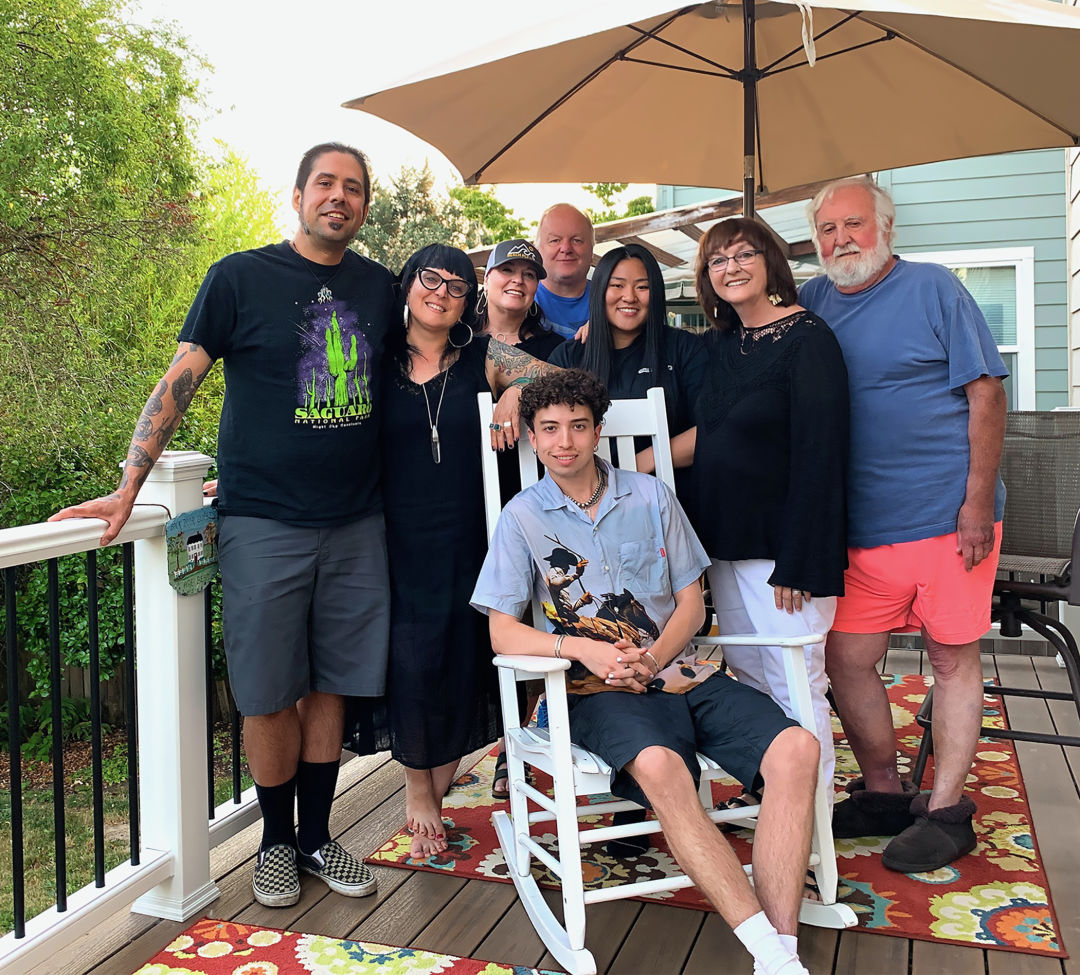Cardiac Care in the Time of COVID-19

With the support of her care team and her family, Eleanor Gorman, pictured second from right, is home and recovering from a mitral valve replacement in her heart.
Image: Courtesy Kaiser Permanente
For most, a hospital is the last place they want to be during a pandemic. But for Caroline Barron’s mom, Eleanor, it was where she would spend four months. On February 28, 2020, 76-year-old Eleanor Gorman was admitted to Kaiser Permanente’s Westside Medical Center after passing out twice in her home.
By the time she arrived, she was presenting signs of stroke, and her condition was rapidly deteriorating. She was quickly transferred to the Center for Heart and Vascular Care at Kaiser Permanente’s Sunnyside Medical Center for treatment.
“She was diagnosed with Staphylococcus aureus — a potentially fatal staph infection,” says her daughter, Caroline. “It went to her heart valve, her kidney, liver, brain, fingertips, toes, shoulder — it went everywhere.”
According to Thomas Lampros, MD, a cardiac surgeon at Kaiser Permanente, the infection spread to Eleanor’s mitral valve, creating a multitude of complications. “The infection was destroying the leaflets of her mitral valve and going into the muscular system, affecting her electrical conduction,” he says. “She also had fragments of infection that had left the valve and had lodged in her brain.”
Taking extra COVID-19 safety precautions, Dr. Lampros performed a mitral valve replacement surgery, essentially saving Eleanor’s life.
Precautions That Protect
Kaiser Permanente’s Sunnyside Medical Center is the only cardiac program in Oregon and Washington to earn the Society of Thoracic Surgeons’ highest rating for three common heart surgeries* — including the mitral valve replacement procedure performed on Eleanor. And despite knowing her mom would be in good hands, Caroline admits she was still nervous about bringing her mom to a hospital during the burgeoning COVID-19 pandemic.
“Our family was very concerned, but the minute we went to visit her we had to suit up in protective gear, masks, headwear, gloves — she was in the hospital for four months, and she made it through without getting COVID-19,” she says. Even after weeks of hospital visits and potential exposure, none of Eleanor’s family contracted the virus, either.
That’s because Kaiser Permanente Northwest has instituted standard COVID-19 safety protocols for all facilities, including mandatory masks and prescreening requirements for all visitors, staff, and patients, and a limit on the number of visitors at its surgery centers.
“I know she was tested numerous times during her stay,” says Caroline. “We feel like it was the safest place she’s been, and she was getting the best care she could get.”
A Heartwarming Success Story
Eleanor Gorman is now at home with her husband, the only evidence of her ordeal a walker she occasionally uses to get around. According to Caroline, her mom doesn’t remember much about her time in the hospital, but she’s looking forward to thanking Dr. Lampros in person when COVID-19 subsides.
“Dr. Lampros made me promise him that our mom would walk down the hall of the hospital someday and give him a high-five,” says Caroline. “He’s our family’s forever hero — we’ll never be able to thank him enough for saving our mom’s life.”
Learn more about Kaiser Permanente’s heart program at kp.org/cardiac/nw.
*Based on performance for adult heart bypass, aortic, and mitral valve replacement surgeries. Analysis of national data covering the period from January 2016 through December 2019. publicreporting.sts.org/gtsd?title=&field_state_value=OR




